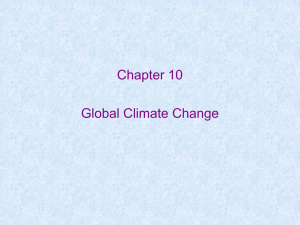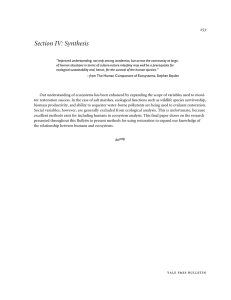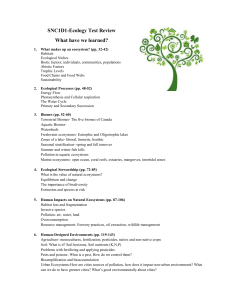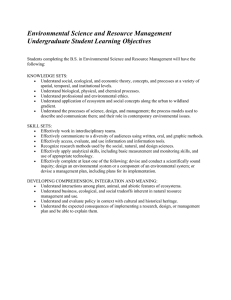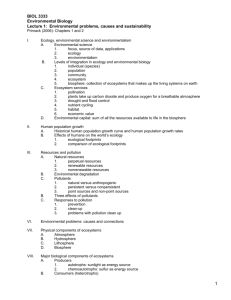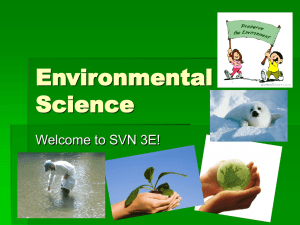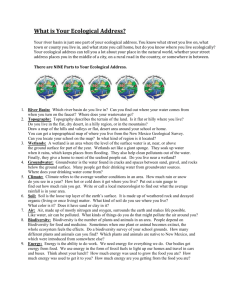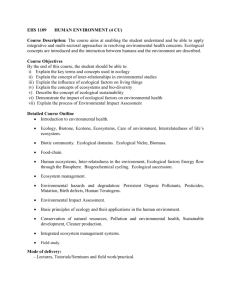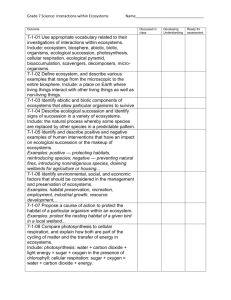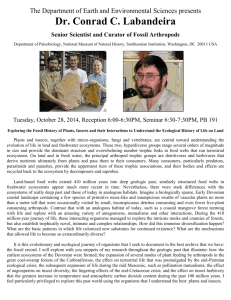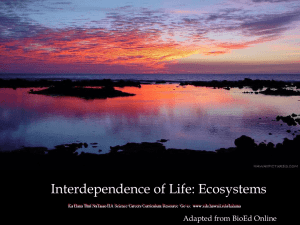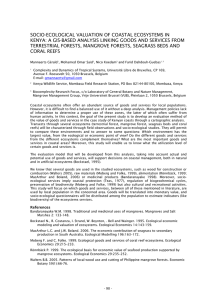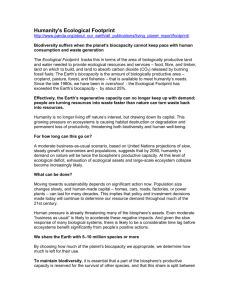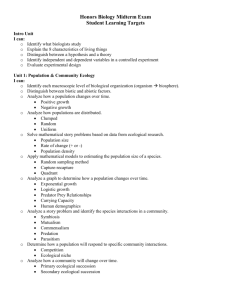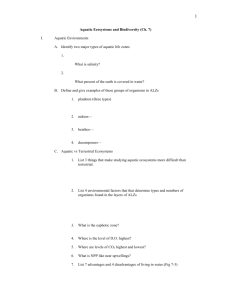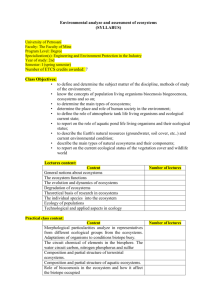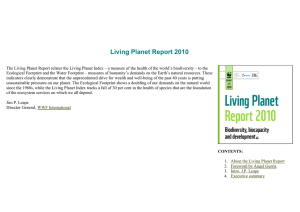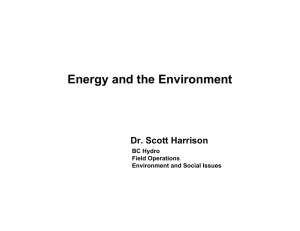Adopt-A-Topic Directions
advertisement
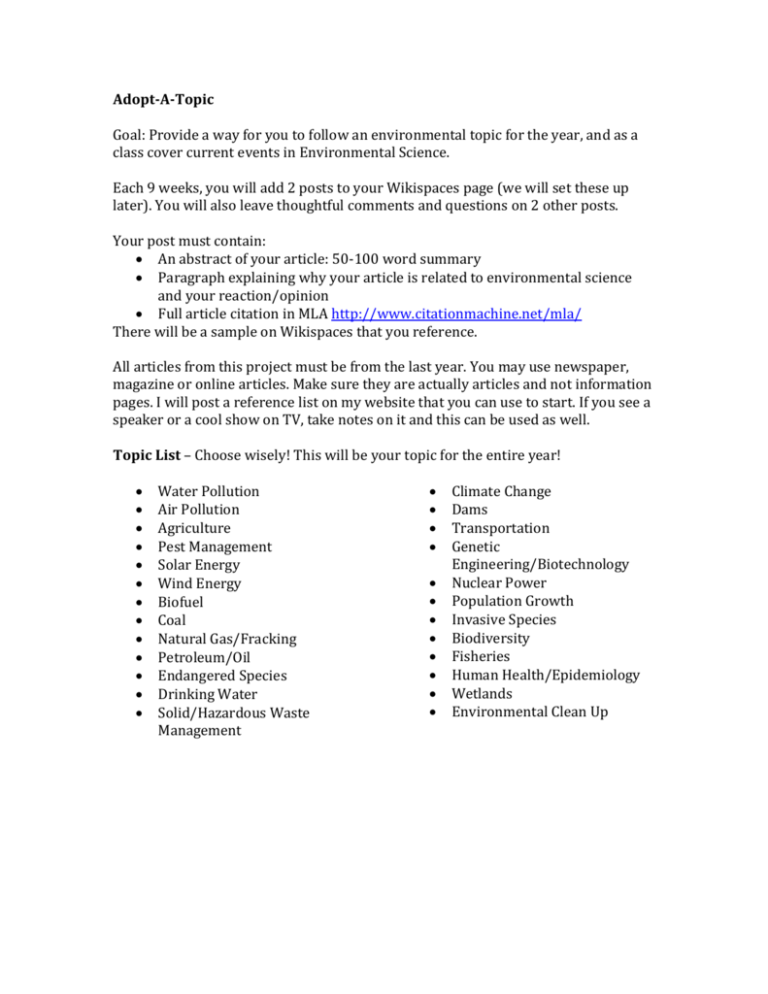
Adopt-A-Topic Goal: Provide a way for you to follow an environmental topic for the year, and as a class cover current events in Environmental Science. Each 9 weeks, you will add 2 posts to your Wikispaces page (we will set these up later). You will also leave thoughtful comments and questions on 2 other posts. Your post must contain: An abstract of your article: 50-100 word summary Paragraph explaining why your article is related to environmental science and your reaction/opinion Full article citation in MLA http://www.citationmachine.net/mla/ There will be a sample on Wikispaces that you reference. All articles from this project must be from the last year. You may use newspaper, magazine or online articles. Make sure they are actually articles and not information pages. I will post a reference list on my website that you can use to start. If you see a speaker or a cool show on TV, take notes on it and this can be used as well. Topic List – Choose wisely! This will be your topic for the entire year! Water Pollution Air Pollution Agriculture Pest Management Solar Energy Wind Energy Biofuel Coal Natural Gas/Fracking Petroleum/Oil Endangered Species Drinking Water Solid/Hazardous Waste Management Climate Change Dams Transportation Genetic Engineering/Biotechnology Nuclear Power Population Growth Invasive Species Biodiversity Fisheries Human Health/Epidemiology Wetlands Environmental Clean Up Unit 1 Definitions (Not included on posted list) Biodiversity: The number and variety of living organisms; includes genetic diversity, species diversity, and ecological diversity. Culture: the beliefs, customs, arts, etc., of a particular society, group, place, or time Ecological Footprint: a measure of human demand on the Earth's ecosystems. It is a standardized measure of demand for natural capital that may be contrasted with the planet's ecological capacity to regenerate Ecological Tipping Point: Beyond certain thresholds, ecosystems may collapse and change into distinctly different states Environmental Worldview: How individuals think the world works, what they think their role in the world should be, and what they believe is right and wrong environmental behavior Gaia Hypothesis: Says that the biosphere is a self-regulating entity with the capacity to keep our planet healthy by controlling the chemical and physical environment. GDP: the market value of all officially recognized final goods and services produced within a country in a year Human Capital: the stock of competencies, knowledge, habits, social and personality attributes, including creativity, cognitive abilities, embodied in the ability to perform labor so as to produce economic value. Less-Developed Country: A country that is considered lacking in terms of its economy, infrastructure and industrial base. The population often has a relatively low standard of living, due to low incomes and abundant poverty. More-Developed Country: sovereign state that has a highly developed economy and advanced technological infrastructure relative to other less industrialized nations Natural Capital: the stock of natural ecosystems that yields a flow of valuable ecosystem goods or services into the future Per Capita: The phrase thus means "by heads" or "for each head", i.e. per individual/person Poverty: Condition where people's basic needs for food, clothing, and shelter are not being met Resource: supply from which benefit is produced, may be renewable or nonrenewable.
